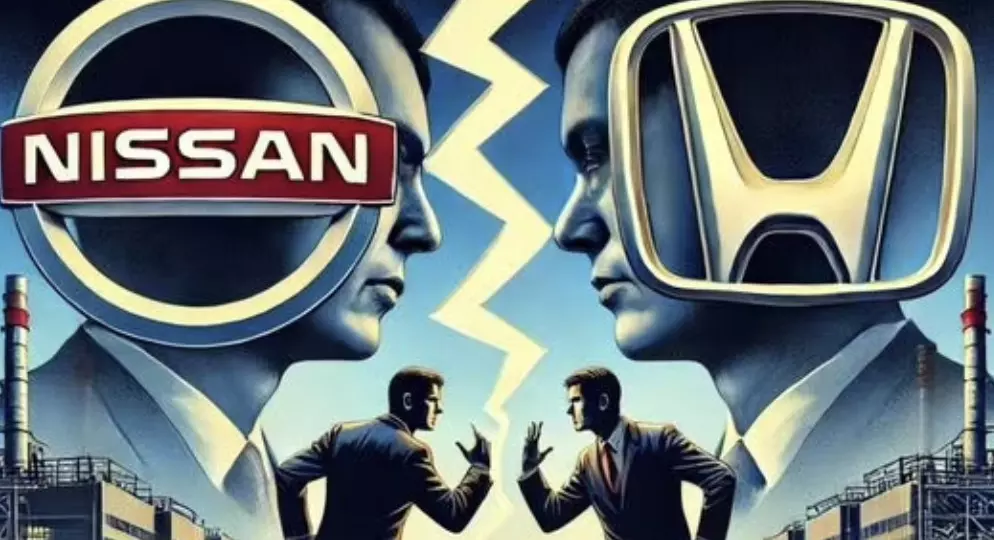Honda-Nissan merger stalls amid U.S. tariff uncertainty
Honda-Nissan merger stalls amid U.S. tariff uncertainty

The ongoing merger discussions between Japanese automakers Nissan Motor Co. and Honda Motor Co. have hit a roadblock, with Nissan's board deciding to suspend talks, according to a Reuters report on Wednesday. The decision comes at a time when both companies face mounting pressure from potential U.S. tariffs on imports from Mexico and Canada, a move that could significantly impact their operations.
Tariff Threats Heighten the Stakes
U.S. President Donald Trump recently announced a 25% tariff hike on imports from Mexico and Canada, though implementation has been delayed for 30 days. The U.S. market is crucial for both automakers—Honda sold around 1.4 million vehicles in the country last year, manufacturing nearly 1 million of them locally. Nissan, on the other hand, sold approximately 1 million cars, producing half of them within the U.S. The remaining units, primarily sourced from Mexico and Canada, now face potential cost increases.
Limited Options for Automakers
If the tariffs take effect, Honda and Nissan have few alternatives. Constructing new manufacturing facilities would take years, and reconfiguring existing plants to accommodate different models could take up to 18 months. As a result, both companies might have to absorb the additional costs or pass them on to consumers. Analysts at CLSA estimate that Honda could see an average vehicle price increase of 6%, the highest among affected automakers, while Nissan may face a 3% hike.
Merger Talks Falter Amid Structural Disputes
Despite the strategic benefits of a merger—including cost savings and improved economies of scale—disagreements over corporate structure have added tension to the negotiations. Nissan reportedly opposed Honda’s proposal for it to become a subsidiary rather than retaining some level of independence. The ongoing friction between the companies, coupled with new economic uncertainties, has cast doubt on their ambitious profit projections, which assumed Nissan’s operating profit would triple by mid-2026.
Adding to the complexity, Renault, Nissan’s largest shareholder, has been pressing for a control premium, further complicating the deal. At Wednesday’s closing price of 386.9 yen, Nissan’s stock has dipped below the 400 yen Renault initially paid when the alliance was formed in 1999.
Uncertain Path Ahead
While the merger would provide a financial cushion against declining profit margins and market volatility, the recent developments suggest that Nissan and Honda may be heading in different directions. With the threat of tariffs looming and internal disagreements persisting, the road ahead looks increasingly challenging for both automakers.
Market Reaction
Honda’s shares surged 8.2% to 1,500 yen in afternoon trading on Feb. 5.
Nissan’s shares dropped 4.9% to 386.9 yen.
Meanwhile, President Trump’s tariff decision remains in flux, with negotiations ongoing. A final resolution on trade policies will play a crucial role in shaping the future of both companies.

